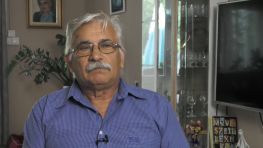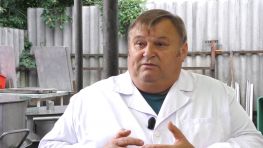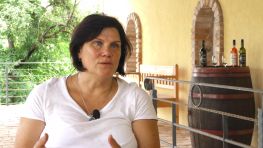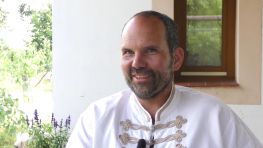 Mihály Sallai
Mihály Sallai 
Slow Food Central Europe
Slow Food-CE is a transnational cooperation project that seeks to improve the capacities of local, public and private actors in order to safeguard and give value to their gastronomic cultural heritage as part of a vision that integrates economic, environmental and social sustainability. The project intends to create a transferable model that can give traditional foods their true value, through knowledge of their producers, plant varieties, animal breeds, traditional processing techniques, folklore, cultural landscape, and enhance the common food heritage of Central Europe, leading to a new alliance between five cities: Venice, Dubrovnik, Brno, Kecskemét and Krakow.

Mihály Sallai
SlowFood-CE project - Kecskemét field research
After the 1956 revolution permits for self-employed tradesmen were issued - this made it possible to start small enterprises. Then his father started his business of making soda-water; i.e. aerated, carbonic acid water. At that time twelve such businesses operated. Customers took the empty siphon bottle to the workshop to have it filled with aerated water. Some tradesmen delivered the siphons in wooden crates to the customers' home with bicycle or horsed carriages. At the age of 11 he already worked. During the summer one week in a pioneers' camp was the most what they had as a vacation. They transported the huge glass siphons - which weighed 120 kg - on tricycles. Later they widened the choice on offer: bambi, a non-alcoholic refreshment was introduced. By the 1960s-70s their workshop was the only one in the soda-water business; thus they had to supply the firms with protective beverages and meet the demands of the population.
Video table of contents
There is no a table of contents
Interview information
Country: HU
City: Kecskemét
Document by: Luca Percivalle
Video by: Zoltán Szűcs
Created: 25-06-2018






